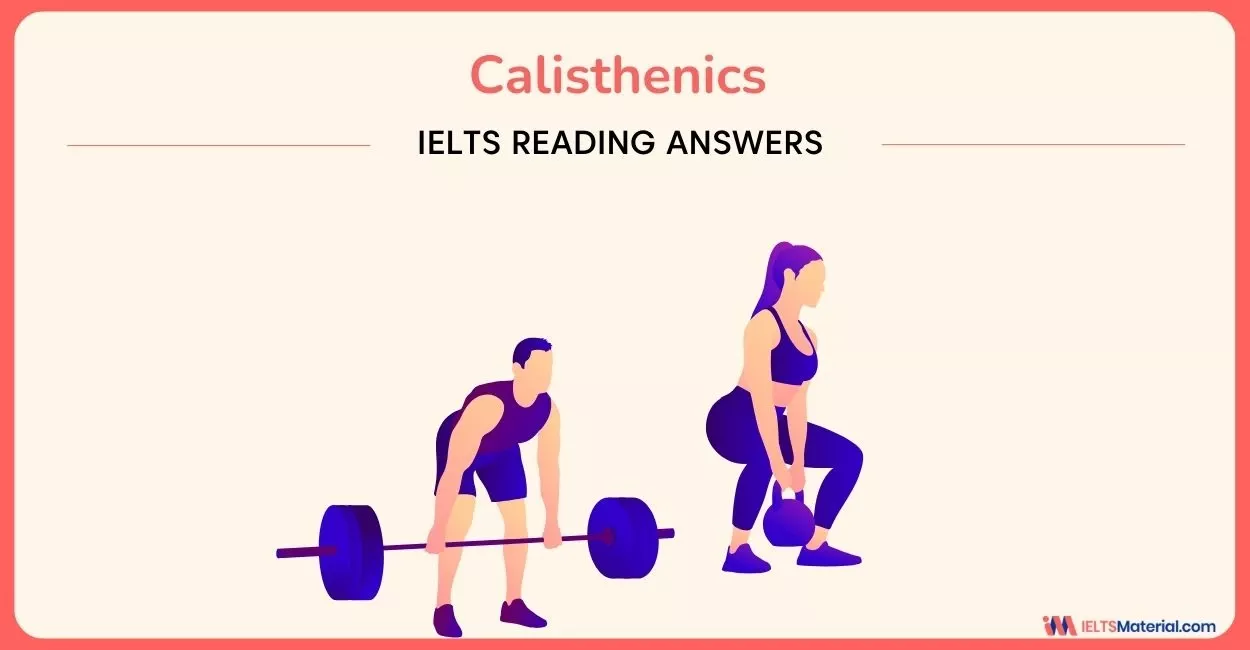A Significant Development in Mining Safety – IELTS Reading Answers
14 min read
Updated On
-
Copy link
Want to practice Reading Passages for Section 1? Dive into the strategies and learn the question types as you attempt the passage, 'A Significant Development in Mining Safety – IELTS Reading Answers' while aiming to achieve a band 8+.
Table of Contents
- Types Of Questions in A Significant Development in Mining Safety – IELTS Reading Answers
- Strategies to Attempt A Significant Development in Mining Safety – IELTS Reading Answers for Achieving a Band 8+
- Reading Passage - A Significant Development in Mining Safety
- Answers with Explanation for A Significant Development in Mining Safety – IELTS Reading Answers

Limited-Time Offer : Access a FREE 10-Day IELTS Study Plan!
With the right preparation, you can tackle any type of question that you might encounter in the IELTS Reading Module. You must pay attention to completing the different types of questions within one hour by practising with topics like 'A Significant Development in Mining Safety – IELTS Reading Answers'. Prior to checking the answer key, attempt to answer the questions as if you are in a real reading test. This will give you insight about the actual reading test passage.
With consistent practice, you can score highest on the IELTS Exam. All you need to do is to prepare using a good strategy so that you can stay calm during the exam. Therefore, it is important to accustom yourself to the conditions of the test. To achieve a higher band score of 8+, you must practice on a regular basis and you would become proficient in these passages such as the passage, ‘A Significant Development in Mining Safety’.
Let's get started!
Connect with our band 9 IELTS Trainers to crack your IELTS Reading in no time! Book a FREE Demo.
Types Of Questions in A Significant Development in Mining Safety – IELTS Reading Answers
By consistently preparing yourself, you would adapt to the exam conditions for the reading module while increasing the level of precision. Since each question will have a unique structure, it is best to familiarize yourself with an individual question type before attempting it. Working on different questions will enhance your reading skills while helping you finish the exam on time.
The question types found in the passage on 'A Significant Development in Mining Safety – IELTS Reading Answers' are:
- IELTS Reading Matching Headings with Tips & Practice Tests (Q.1-Q.5 )
- IELTS Reading Summary Completion with Tips & Practice Tests (Q.6-Q.9 )
- IELTS Reading Multiple Choice Questions (Q.10-Q.13 )
Are you confused and not sure on how to attempt questions on Matching Headings? Check out the video below!
Grab the IELTS Reading (Academic) Test Guide: Essential Tips, Strategies, and Practice Tests today and take a step towards success!
Strategies to Attempt A Significant Development in Mining Safety – IELTS Reading Answers for Achieving a Band 8+
To attempt the passage, 'A Significant Development in Mining Safety – IELTS Reading Answers', you must first keep a few tips in mind to continuously improve your reading skills. With the right strategy, you will enhance your skills while spotting the information and selecting the answers whether you are appearing for the IELTS Academic Reading or General Training. Below are some of the strategies which you can consider as you prepare yourself and attempt the passage.
- Read the question first and identify the keywords given rather than spending time in reading the entire passage in the beginning. This will be time consuming and you might assume most of your answers. Therefore, skimming and scanning are the best strategies.
- Since the passage is from Section 1, you must put the timer on and spend no more than 20 minutes. This will help you to note you progress level and identify the areas where you face the most difficulty in. Remember that Time Management for IELTS Reading is a crucial aspect.
- Do not spend time on one difficult question, rather you can go ahead and attempt the next one. You can always return to the question later if time permits. As you practice, give yourself only one minute for answering an individual question. With this, you will have additional time to look over the passage.
- You must learn How to Ace IELTS Reading with 'Keyword Technique'. You can start by underlining the specific information so that your answer is relevant to the question.
- Always read the instructions given for each question type as it will tell you what sort of information you need from the passage and how you should answer the questions. This strategy would save your time as you take a glance over the questions provided first and understand the information you need to find from the passage.
- Look at your spellings since you might loose a score if you write wrong spelling.
- As the questions will tend to be paraphrased, you must familiarize yourself with different IELTS Vocabulary words so that you can grasp information from context.
- Use the strategy of eliminating the options for multiple-choice and matching questions. Doing this will increase your chances of guessing the answers correctly, especially when you are unsure.
Reading Passage - A Significant Development in Mining Safety
Significant Development in Mining Safety
A Coal has been used as a source of fuel for over 5,000 years, but for most of that time it was probably gathered from places where it was exposed on the surface of the ground, It is possible that the Romans undertook some mining, but coal mines across Europe largely, date from the 13th century. Thereafter coal production increased steadily and it gradually replaced charcoal and wood as a source of heat and energy. Initially, coal mines were fairly shallow, but they quickly reached the point where artificial lighting was necessary. At first, the lights used would have been no different from those used domestically — candles and simple oil lamps.
But as coal mines became deeper, miners encountered a new and terrible problem –firedamp. This was a natural gas, principally consisting of methane, that exploded on contact with a naked flame.The first known major firedamp explosion, which killed 99 people, took place in Belgium in 1514 and as new technology was used to mine at increasingly deep levels, the problem got worse.
B The simplest solution was to improve the ventilation of the mine. Many mines had only one shaft leading from the surface down to the working area below. Ventilation could be improved to some extent by dividing this into a downcast (bringing in fresh air) and an upcast (returning foul air and firedamp to the surface).But what was really needed was a safe lamp that could not ignite firedamp. The earliest forms of safety lighting sought to produce light without using a naked flame.One early method tried to utilise the fact that skins removed from decaying fish contain the element phosphorus, which emits light in the form of phosphorescence. Unfortunately, this phosphorus is highly toxic, flammable and can self-ignite -hardly desirable properties in a safety light.An alternative was a device invented in about 1750, consisting of a flint which struck against a piece of iron when a handle was turned, creating a shower of sparks which lit up the surrounding area. These were believed to be too cool to ignite firedamp.This device had major drawbacks – extra manpower had to be used to operate it continuously, and it also required regular maintenance and replacement.But worst of all, it was not in fact safe, and numerous accidents were caused when the sparks ignited firedamp. Nonetheless, it was considered to be the least dangerous form of lighting at the time.
C By about 1810 the problem was becoming acute, and in some cases there was no alternative to working in the dark. Some mines were being forced to stop production, with serious economic consequences for the mine owners and local communities.
The general response, however, was to keep going and reluctantly accept the inevitable deaths from ignition of firedamp as a regrettable but not especially remarkable, consequence of coal mining.The miners themselves could do little — they were largely illiterate, and depended on the mine owners for a livelihood. However, the clerical, medical and legal professions were beginning to take notice.After 92 men and boys were killed in 1812 by an explosion at Felling Colliery in northern England, several professional people took action and a society was set up to raise funds for the discovery of new methods of lighting and ventilating mines.The first report of the society stated, ‘It is to scientific men only that we must look up for assistance in providing a cheap and effectual remedy.’
D As the leading chemist of the day, and an expert on gases, Sir Humphrey Davy was a natural choice from whom to seek help, and he was approached by the society in 1815.The general belief nowadays is that he was the inventor of the first miners’ safety lamp, in which the flame was enclosed by a mesh screen containing very small holes.Air could enter the lamp through the holes, but they were too small to allow the flame of the lamp to pass through them and ignite any firedamp present in the mine tunnelsDavy presented a paper describing the lamp in November 1815, and it was trialled in January 1816. However, a few weeks prior to Davy’s presentation, an engineer called George Stephenson had independently designed and demonstrated a lamp based on the same scientific principles. After much discussion and argument, he was eventually recognised as deserving equal credit for the discovery, but the time needed for this recognition to be given meant that the miners’ safety lamp had already been called the ‘Davy lamp’, and it is still called that today.
E But in fact, the real inventor of the safety lamp was a man called Dr William Reid Clanny, who in 1813 had been awarded a silver medal by the Royal Society of Arts, Manufacturers and Commerce for his own version of a safety lamp. Clanny’s first lamp did not fulfill the needs of the ordinary working miner as it was rather heavy and cumbersome. But rather than seeking to glory in his achievement, he recognised its deficiencies and continued to work to improve it, as well as sharing his knowledge with others.George Stephenson acknowledged a debt to Clanny’s research, and Humphrey Davy visited him in 1815 shortly before completing the design for his own safety lamp but to this day Dr Clanny remains a forgotten hero.
Question 1-5
The text has five sections A-E (1-5).
Choose the correct heading from the list below for every section.
Headings
i. A controversy over two versions of an invention.
ii. The need to mine deeper for good-quality coal.
iii.Growing awareness of the need to improve conditioners for miners.
iv.A new danger caused by developments in mining.
v.The impact of poor air quality in mines on miner’s health.
vi.Early attempts to provide lighting without flames.
vii. A demand by miners for new technology.
viii.A person whose work never received full recognition.
1 Section A
2 Section B
3 Section C
4 Section D
5 Section E
Question 6-9
Complete the summary below.
Choose ONE WORD ONLY from the passage.
The problem of providing artificial lighting in coal mines
Coal mines in Europe only really developed from the 13th century. As they became deeper, the methods used for lighting them created a risk of 6………………… due to the presence of firedamp. One solution was to improve ventilation by separating the7……….. into two parts. However, better lighting was also needed. One suggestion was to use a chemical found in the skins of fish, but this was found to be unsafe. Another possibility was a device which created 8…………. as it was believed these would not ignite the gas. However, this required additional 9………….. as well as maintenance and replacement and it was also unsafe.
Questions 10-13
Write the correct letter in the boxes 10-13 on your sheet.
10 What does the writer say about mine owners in 1810?
A Most of them disregarded safety issues
B They were criticized for conditions in the mines
C Most of them used unfair pressure to keep mines open
D They were unaware of how dangerous the mines were
11 According to the writer, what was the significance of the explosion at Felling Colliery in 1812?
A It led to increased legal protection for miners
B It led to a change in public attitudes to mining safety
C It demonstrated the lack of concern of certain groups towards the miners
D It started a movement to give miners proper training in safety procedures
12 The lamp presented by Davy was safer than previous methods of lighting because of its flame
A Could not remain alight for long time
B Did not get large enough to ignite the firedamp
C Did not have any contact with the air
D Could not pass beyond the mesh screen
13 What does the writer say about Davy and Stephenson?
A Davy refused to accept Stephenson’s work as it had not been fully trialed
B Davy insisted on the safety lamp being named after him rather than Stephenson
C Stephenson claimed Davy’s work was based on false principles
D Stephenson produced a working example of a safety lamp before Davy
Practice with the A Complete Package for IELTS Reading (General): Band 8 Self-Paced Preparation Course with An Improved IELTS General Reading Ebook and achieve a band 8+.
Answers with Explanation for A Significant Development in Mining Safety – IELTS Reading Answers
Now, let's check out the answers for the passage, 'A Significant Development in Mining Safety – IELTS Reading Answers'. Try to find out why the wrong answers are incorrect while looking at the right ones, as this will help you in analyzing your own answer and knowing where you will need improvement to reach an 8+ IELTS Reading Band Score. Below are the answers with explanation for the passage so that you can go through it and enhance your skills.
| Answer | Question Type | Answer Location | Answer Explanation |
| 1. 4 | Matching Heading | Paragraph A, Line 8 | Take a look on this line from Paragraph A, ““….. But as coal mines became deeper, miners encountered a new and terrible problem – firedamp. This was a natural gas, principally consisting of methane, that exploded on contact with a naked flame. ….” It is given there in line 8th that it was a big problem regarding mining. That it could lead to the release of a natural gas that can explode from flame. Hence, the answer is 4 ( A new danger caused by developments in mining). |
| 2. 6 | Matching Heading | Paragraph B, Line 5 | Take a look on line 5 “….The earliest forms of safety lighting sought to produce light without using a naked flame…..”. It is stated that people were struggling to develop a light that could be used without any naked flame. Hence, the answer is 6 ( Early attempts to provide lighting without flames) |
| 3. 3 | Matching Heading | Paragraph C, Line 7 | You can check this line 7 from paragraph C “….The miners themselves could do little when they were largely illiterate, and depended on the mine owners for a livelihood…..” It is stated in this line that minors were illiterate and they were dependent on the mine owners, hence needed awareness. So, the answer is 3 ( Growing awareness of the need to improve conditioners for miners) |
| 4. 1 | Matching Heading | Paragraph D, Line 10 | It is stated in line 10 on Paragraph D that “….After much discussion and argument, he was eventually recognized as deserving equal credit for the discovery…..” It is clear here that there was a conflict between two inventors Sir Humphrey Davy and Reid so they both invented the lamp on the same scientific principles. Hence, the answer is 1 ( controversy over two versions of an invention) |
| 5. 8 | Matching Heading | Paragraph D, Line 10 | Take a look on this line “….But rather than seeking glory in his achievement, he recognized its deficiencies and continued to work to improve it, as well as sharing his knowledge with others……” It is stated here that he did not get full recognition for his lamp because of its design and people forgot him after some time. So, the answer is 8 ( A person whose work never received full recognition ). |
| 6. EXPLOSION | Summary Completion | Paragraph A, Line 10 | Have a look at line 10 of paragraph A, “…The first known major firedamp explosion, which killed 99 people ….” It is stated that the explosion took place in Belgium due to the release of natural gas and its inflammability. Hence, the answer is EXPLOSION. |
| 7. SHAFT | Summary Completion | Paragraph B, Line 1 | Take a look at line 1 of paragraph B, it is clearly stated that, “….The simplest solution was to improve the ventilation of the mine. Many mines had only one shaft leading from the surface down to the working area below….”. The solution that was provided was to increase the number of shafts for more air ventilation. Hence, the answer is SHAFT. |
| 8. SPARKS | Summary Completion | Paragraph B, Line 11 | In this specified line of Paragraph B, it is stated that“….An alternative was a device invented in about 1750, consisting of a flint which struck against a piece of iron when a handle was turned, creating a shower of sparks which lit up the surrounding area…..”. They thought of creating a lamp that would continuously spark. Hence, the answer is SPARKS. |
| 9. MANPOWER | Summary Completion | Paragraph B, Line 13 | In the specified line of Paragraph 13 it is written that “….This device had major drawbacks – extra manpower had to be used to operate it continuously, and it also required regular maintenance and replacement…..”. It is clear in this line that manpower was required for regular maintenance. Hence, the answer is Manpower. |
| 10. A | Multiple Choice Question | Paragraph C, Line 7 | In the specified line it is stated that “….The miners themselves could do little when they were largely illiterate, and depended on the mine owners for a livelihood….”. That means that the miners were not very educated and they had very little idea of safety. Hence, the answer is A ( Most of them disregarded safety issues). |
| 11. B | Multiple Choice Question | Paragraph C, Line 13 | Take a look at this line, “….After 92 men and boys were killed in 1812 by an explosion at Felling Colliery in northern England, several professional people took action and a society was set up to raise funds….”. It explains that after this tragedy the safety measures were increased. Hence, the answer is B( It led to increased legal protection for miners. ). |
| 12. D | Multiple Choice Question | Paragraph D, Line 3 | In this specified line, “….The general belief nowadays is that he was the inventor of the first miners’ safety lamp, in which the flame was enclosed by a mesh screen containing very small holes….”. It is clearly stated that they were concerned about the safety of miners so they made a mesh screen with very small holes and flames were not going out from that. Hence, the answer is D ( Could not pass beyond the mesh screen). |
| 13. D | Multiple Choice Question | Paragraph D, Line 3 | Take a look at this line: “…However, a few weeks prior to Davy’s presentation, an engineer called George Stephenson had independently designed and demonstrated a lamp based on the same scientific principles…..”It is stated here that Stephenson produced an example of a safety lamp before Davy’s lamp. Hence, the answer is D ( Stephenson produced a working example of a safety lamp before Davy). |
Enroll into our Free IELTS Webinar and learn more about techniques to improve your reading speed.
After continuous practice, you will elevate your preparation for the reading module whether you are appearing for Academic or the IELTS General Reading. This will help you gain confidence for the final exam day as you will be calm and also aware of the strategies to be used. Remember that managing time and stressing the keywords given in the question when searching for answers will help you achieve a band 8+. So, keep working and learn to enhance your speed and accuracy in reading the questions on passages.
Check More Reading Passages :
Also Check:
Practice IELTS Reading based on question types

Start Preparing for IELTS: Get Your 10-Day Study Plan Today!
Explore other Reading Actual Tests

Kasturika Samanta

Kasturika Samanta

Kasturika Samanta

Kasturika Samanta
Recent Articles

Nehasri Ravishenbagam

Haniya Yashfeen

Haniya Yashfeen

Haniya Yashfeen




Post your Comments